Nigerian Crypto Exchange Compliance Checker
Check Exchange Legality in Nigeria
Nigeria's Investments and Securities Act (ISA 2025) requires all crypto exchanges operating in Nigeria to be licensed by the Securities and Exchange Commission (SEC). This tool checks if the exchange you're using is officially licensed.
Enter an exchange name to check its compliance status under Nigeria's 2025 regulations.
For years, Nigerian crypto users were caught in a legal gray zone. They traded Bitcoin and Ethereum in massive numbers - more than any other country in the world - while banks blocked their accounts and police raided homes over crypto wallets. But in March 2025, everything changed. The Nigerian government passed the Investments and Securities Act (ISA 2025), turning crypto from something you hid from the authorities into something you register with them.
What Changed in 2025?
Before ISA 2025, Nigeria’s stance on crypto was pure contradiction. The Central Bank of Nigeria (CBN) banned banks from handling crypto transactions in 2021. Yet, Nigerians kept trading. By 2023, over 22 million people - nearly 10% of the population - were using crypto, mostly through peer-to-peer (P2P) apps like Paxful and Binance P2P. The CBN didn’t stop them. They just made it harder.
Then came ISA 2025. This law didn’t ban crypto. It brought it under the control of the Securities and Exchange Commission (SEC). Now, any platform that lets Nigerians buy, sell, or trade crypto must be licensed by the SEC. That includes Quidax, Busha, and even international exchanges like Binance if they want to serve Nigerian customers directly.
The law defines crypto as a digital asset that can be traded or used for investment - not as money. So Bitcoin isn’t legal tender. But it’s a security. That means exchanges have to follow anti-money laundering rules, verify users, and report suspicious activity to the Nigerian Financial Intelligence Unit (NFIU).
Who Got Licensed? Who Didn’t?
As of October 2025, only two local platforms - Quidax and Busha - have received full licensing from the SEC. Others are still waiting. The process is slow. Some platforms submitted applications in May 2025 and still haven’t heard back. Why? Because the SEC is checking everything: who owns the company, where the servers are, how they handle user funds, and whether they’ve trained staff on fraud detection.
International exchanges like Binance and Kraken aren’t licensed yet. But they’re still accessible to Nigerians. The law doesn’t block access to foreign platforms - it just says Nigerian businesses can’t operate without permission. So if you use Binance, you’re still trading. But you’re doing it outside the regulated system. That means no legal recourse if something goes wrong.
Banking Still Isn’t Easy
Here’s the catch: even though the CBN lifted its 2021 ban in December 2023, most Nigerian banks still treat crypto users like criminals. Many users report being denied loans, having accounts frozen, or being asked to explain their crypto transactions - even if they’re using a licensed exchange.
One trader in Abuja told a local news outlet he had to pay ₦150,000 (about $90) to a police officer after they raided his home and found his crypto wallet. He had done nothing illegal. He was just using Quidax. But the officer didn’t know the new rules. And no one had trained them.
That’s the real problem. The law changed. The police didn’t. The banks didn’t. The tax office didn’t. So while the government says crypto is legal, many Nigerians still feel like they’re breaking the law just by holding Bitcoin.
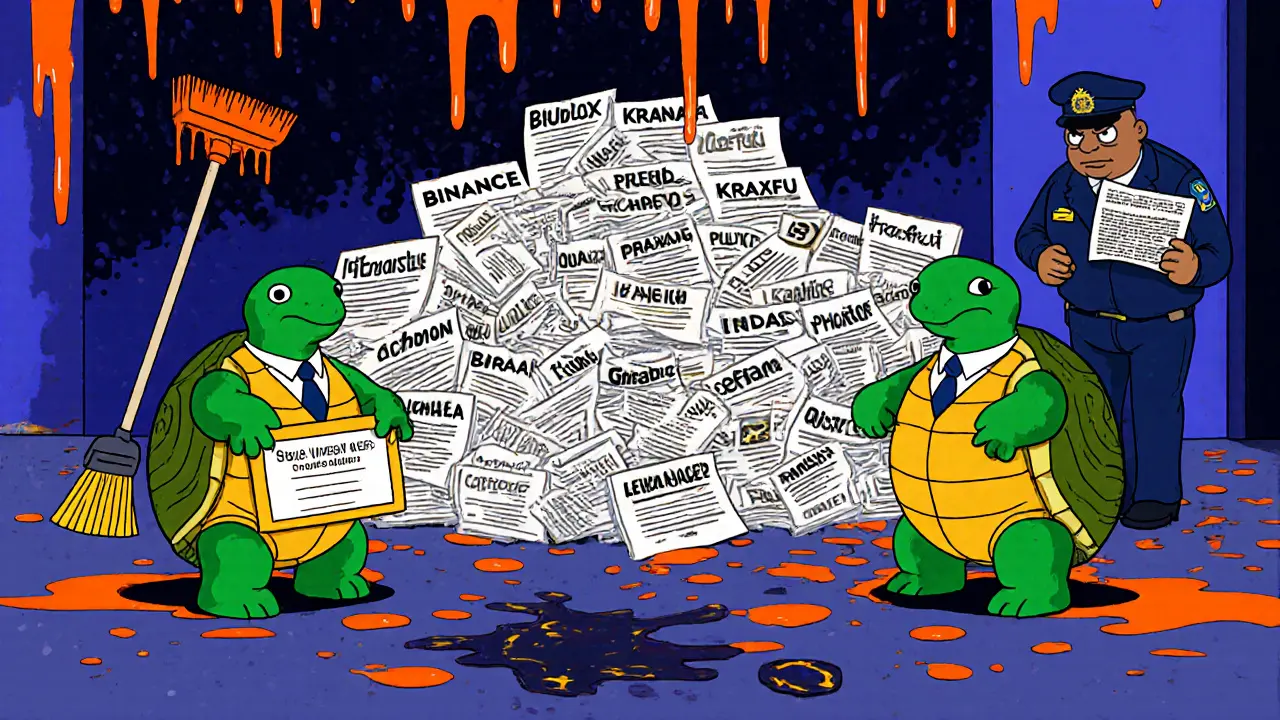
What About Taxes?
The SEC confirmed in September 2025 that they’re working on a crypto tax framework. No official rates or rules have been released yet, but they’re looking at how other countries handle it. The goal? To collect revenue from the $400 million crypto market that’s already active in Nigeria.
Right now, most traders don’t report crypto gains. Why? Because there’s no system to do it. No official forms. No clear guidelines. But that’s changing. Analysts expect tax rules to drop in early 2026. Once they do, licensed exchanges will be required to report transaction data to the Federal Inland Revenue Service (FIRS). That means your crypto trades could show up on your tax return.
What Should Nigerian Traders Do Now?
Here’s what works in 2025:
- Use a licensed exchange like Quidax or Busha. They follow the rules. You’re protected if something goes wrong.
- Keep records of every trade. Date, amount, currency, platform. You’ll need this if taxes come.
- Don’t use unlicensed platforms for large amounts. If they disappear, you have no legal rights.
- Don’t let police or bank staff scare you. Show them the ISA 2025 law. They might not know it, but you do.
- Stay off social media hype. Scams are still everywhere. If it sounds too good to be true, it is.
Some traders still prefer Binance P2P because it’s faster and has better liquidity. That’s fine - as long as you understand the risk. You’re not breaking the law. But you’re not protected by it either.
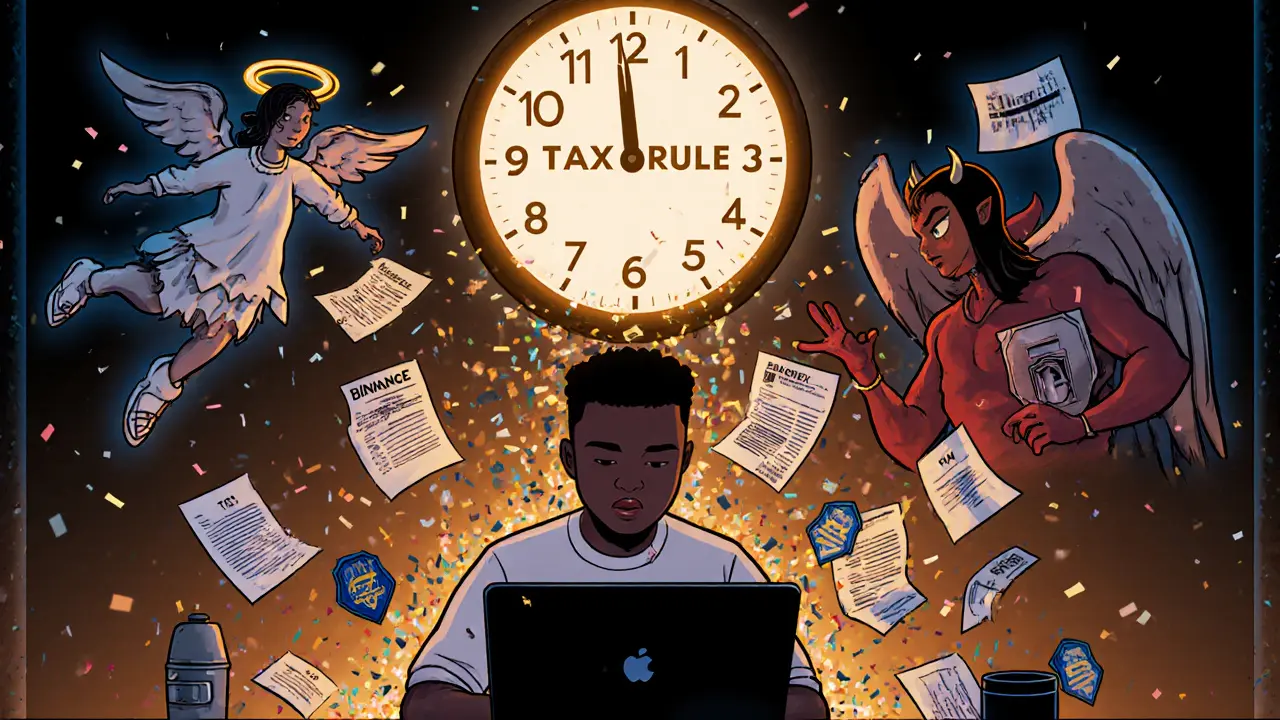
Why This Matters Beyond Nigeria
Nigeria’s shift isn’t just local. It’s a model for Africa. Countries like Kenya, Ghana, and South Africa are watching closely. If Nigeria gets this right - if it balances innovation with safety - others will copy it. If it fails, they’ll stay scared.
Right now, Nigeria leads the world in crypto adoption. But leadership isn’t about volume. It’s about control. Can the government turn millions of underground traders into compliant users? Can it stop police from shaking down crypto owners? Can it make banks treat crypto like any other asset?
So far, the answer is: maybe. The law is good. The execution is messy.
What’s Next?
By mid-2026, we’ll know if Nigeria’s experiment works. If licensed exchanges grow, if tax collection starts, if banks stop freezing accounts - then this becomes a success story. If not, Nigerians will keep trading, but they’ll keep living in fear.
The future of crypto in Nigeria isn’t about bans anymore. It’s about how well the system can catch up to the people who already changed it.
Is it illegal to trade crypto in Nigeria in 2025?
No, it’s not illegal. The Investments and Securities Act (ISA 2025) legalized cryptocurrency trading and placed it under SEC regulation. Individuals can buy, sell, and hold crypto without breaking the law. But exchanges must be licensed to operate legally in Nigeria.
Can Nigerian banks block my account for using crypto?
Technically, no - the Central Bank of Nigeria lifted its 2021 ban in December 2023 and now permits banks to work with licensed crypto businesses. But in practice, many banks still freeze accounts or refuse services to crypto users. This is due to poor internal training and lack of clear enforcement guidelines. If you’re using a licensed exchange and still face issues, file a complaint with the CBN’s Consumer Protection Department.
Are my crypto earnings taxed in Nigeria?
As of November 2025, there are no official crypto tax rules yet. The SEC and Federal Inland Revenue Service (FIRS) are developing them, with expected rollout in early 2026. Until then, there’s no legal requirement to report crypto gains. But keep records - once taxes are enforced, you’ll need proof of transactions.
Why are police still arresting people for crypto?
Because enforcement hasn’t caught up to the law. Many police officers, especially outside major cities, weren’t trained on ISA 2025. Some still believe crypto is illegal. Others use it as an excuse to extort money. If you’re harassed, record the incident, get the officer’s badge number, and report it to the Nigerian Police Force’s Public Complaints Unit. The law is on your side - you just have to know how to use it.
Which crypto exchanges are officially approved in Nigeria?
As of October 2025, only two local exchanges have received full SEC licensing: Quidax and Busha. International platforms like Binance, Kraken, and Coinbase are not licensed to operate in Nigeria, though Nigerians can still access them. Using unlicensed platforms means you’re not protected by Nigerian law if something goes wrong.
Can I use crypto to pay for goods in Nigeria?
Yes, but it’s not common. Crypto isn’t legal tender, so businesses aren’t required to accept it. Some online stores and freelancers do accept Bitcoin or USDT for payments, especially in Lagos and Abuja. But most transactions still happen in Naira. Using crypto for payments doesn’t violate the law - it just doesn’t have official backing yet.
Is it safe to invest in NFTs in Nigeria?
It depends. Artistic NFTs - like digital art or collectibles - are not regulated by the SEC. But investment-focused NFTs - like those promising returns, royalties, or fractional ownership - are considered securities and fall under ISA 2025. Only buy NFTs from licensed platforms if they’re tied to financial returns. Otherwise, treat them like any other speculative purchase.
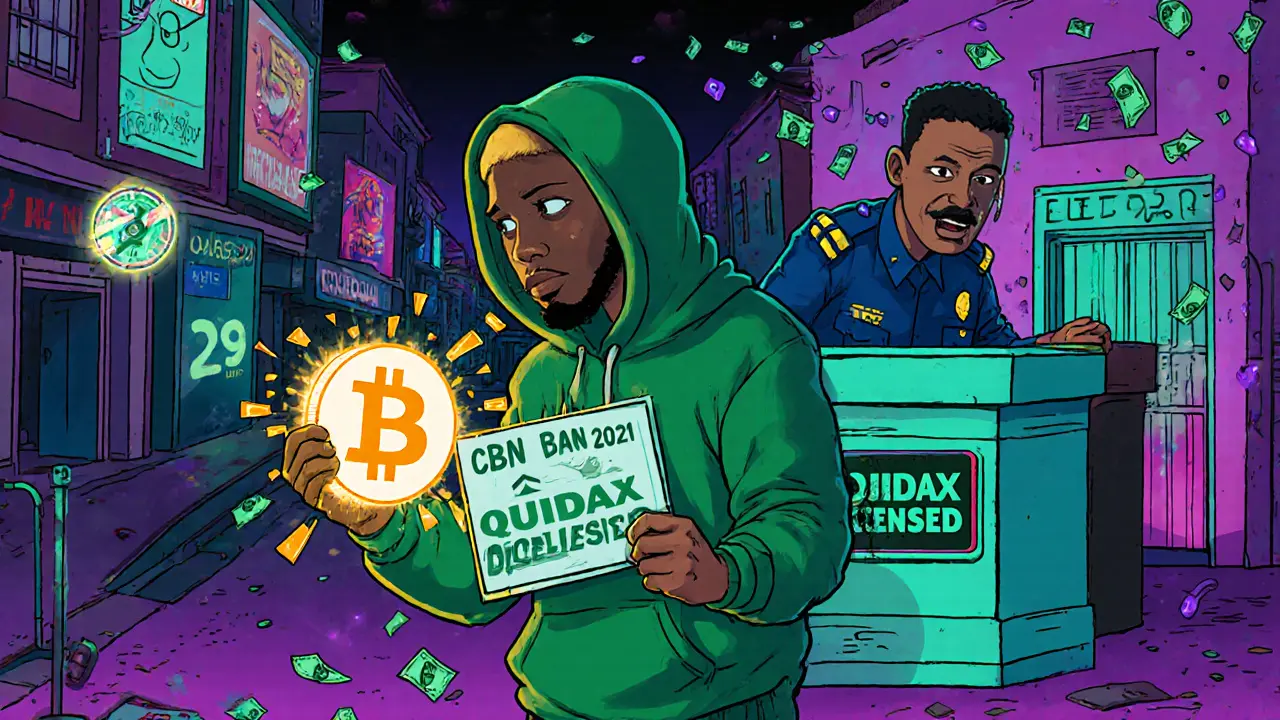
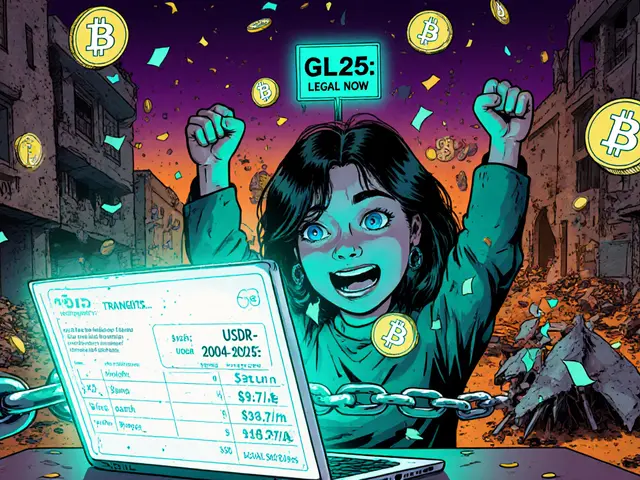

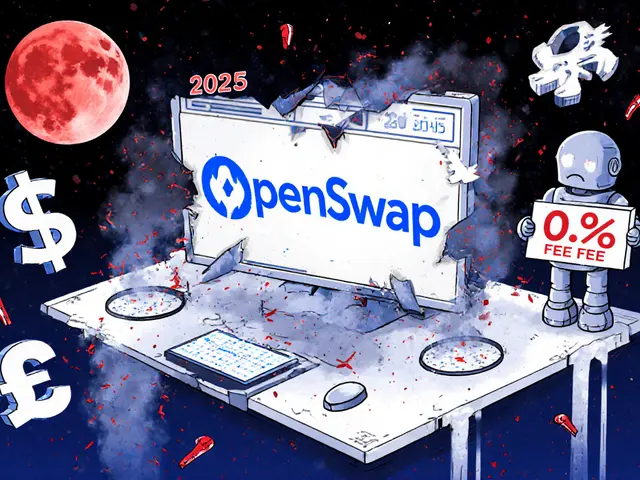
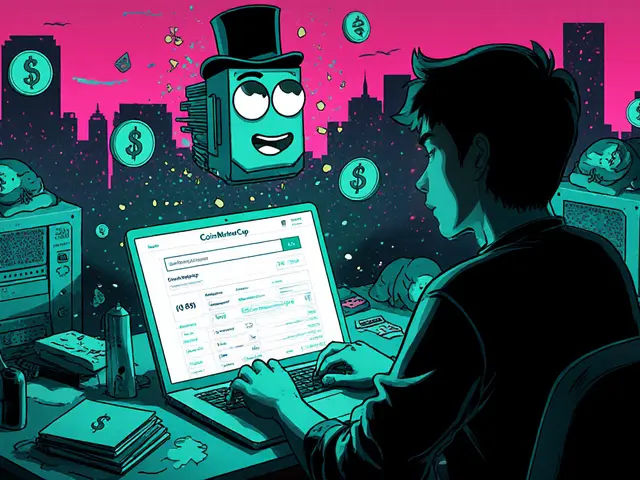
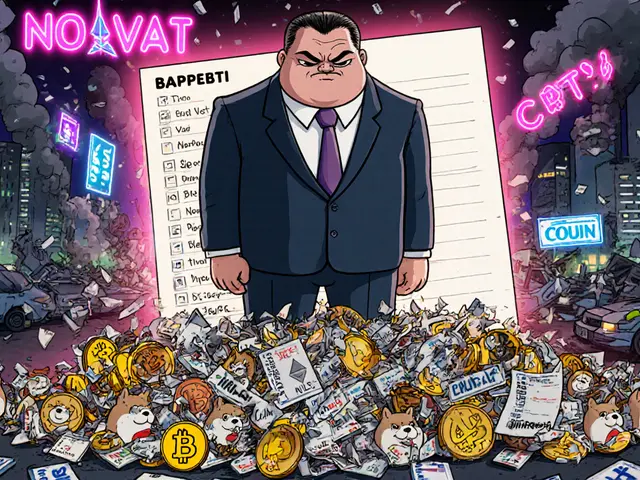
Mike Calwell
lol so now u just gotta pay off the cop to keep ur btc? sounds like naija got the same system as my uncle's corner store.